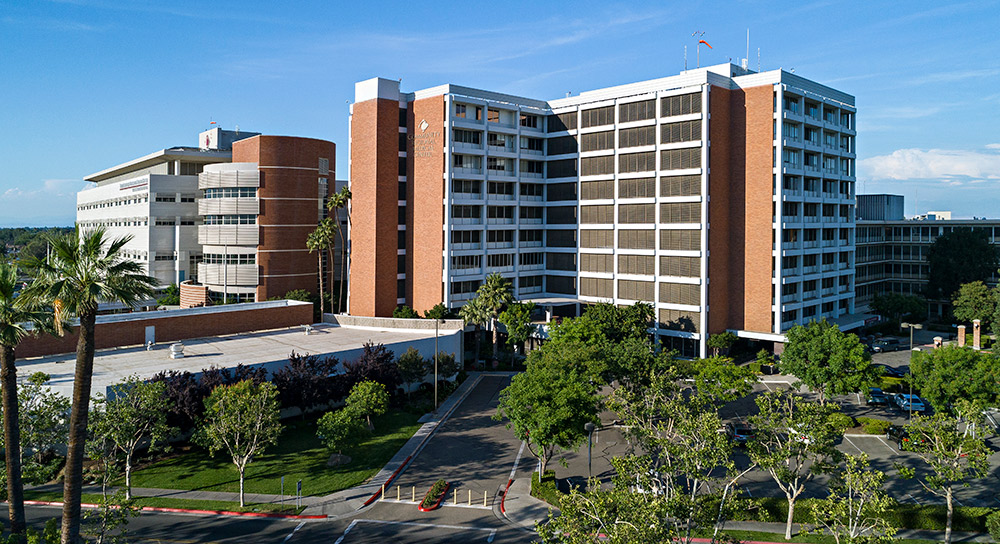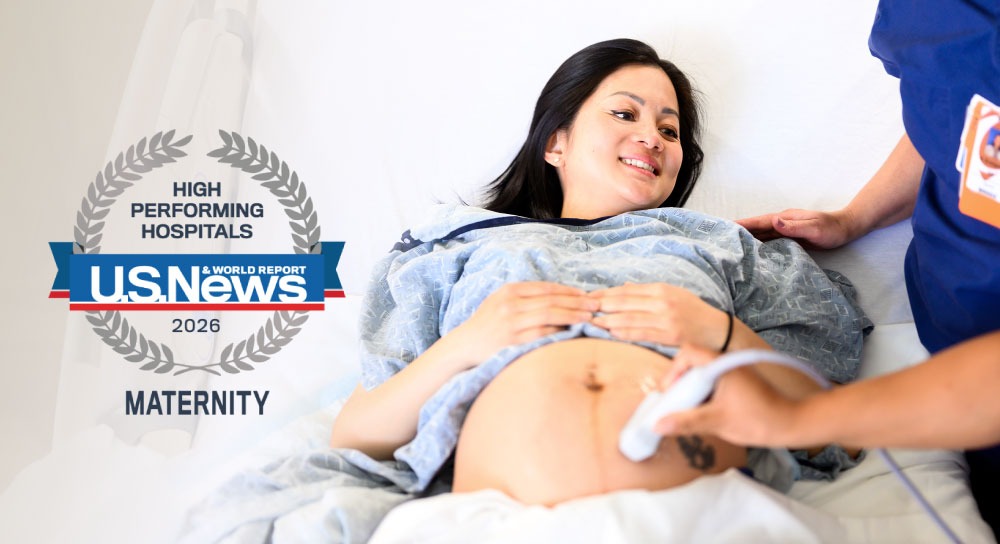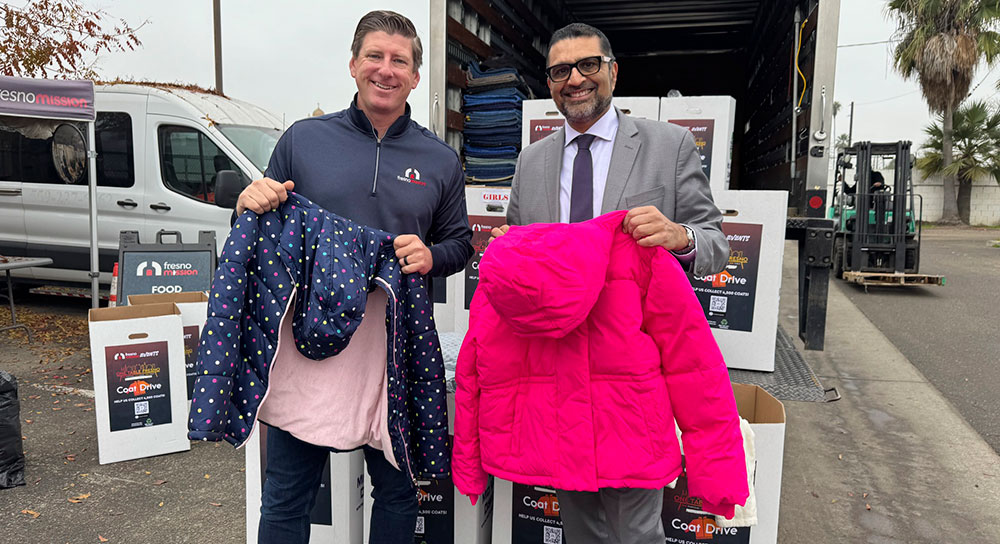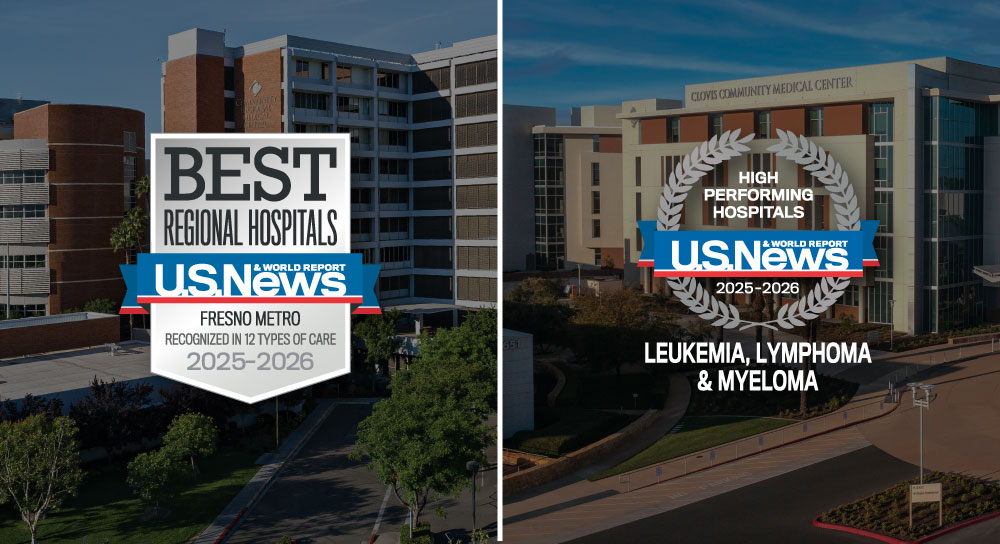When 25-year-old Gabby Manoz began coughing and feeling exhausted, she thought it was just symptoms of her pregnancy, or maybe it was the flu. But when those symptoms worsened, her mom Tracy Ornelas rushed her to Madera Community Hospital. There, Manoz was diagnosed with COVID-19 and was quickly transferred to Community Regional Medical Center for a higher level of care.
“At first I thought it was the flu and like, it’s ok, it will pass,” said Manoz. “But it just kept getting worse and even my body felt off.”
Her cough and fatigue were really bad, but she didn’t have other COVID-19 symptoms like loss of smell or taste, and she never had a fever, she said.
Although Manoz was young and felt fairly healthy, she did have diabetes. The American Diabetes Association says people with this disease are at increased risk of more severe infection from COVID-19.
When she arrived at Community Regional, doctors were very concerned for Manoz and her baby because, despite their efforts, she wasn’t responding to treatment.
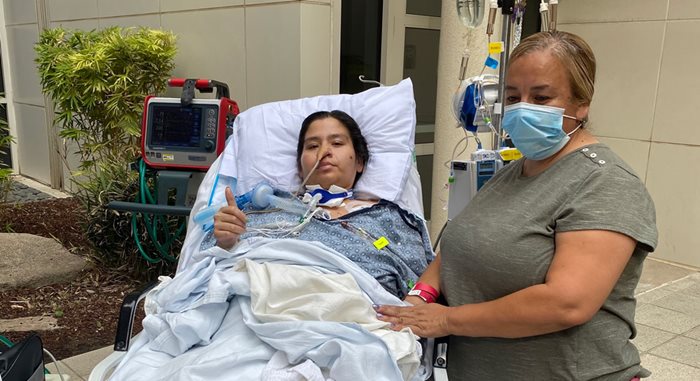
“When Gabby was transferred to us she was already in respiratory failure,” said UCSF pulmonologist Mohamed Fayed, who works with critical care patients at Community Regional. After several days of treatment in the ICU she just wasn’t getting any better.
So, Dr. Fayed decided for both patients’ safety they needed to deliver the baby. Since Manoz was about 34 weeks into her pregnancy, it would give her a better chance of survival — which at the lowest point of her treatment was determined to be about 10%.
After the delivery, Manoz’s condition got worse.
“After 18 to 20 days of mechanical ventilation she was clearly, clearly, failing all the measures to save her life,” Dr. Fayed said. “The last resort in our hand was something called ECMO.”
To keep her alive, Dr. Fayed and his team started a treatment called Extracorporeal Membrane Oxygenation (ECMO) — where huge tubes from a machine divert 80% of the blood out of the body to load it with oxygen and then inject it back into the body to circulate. It was the only chance Manoz had to survive and Community Regional is the only hospital in the Valley with the expertise and team to manage ECMO patients. She was on ECMO for 28 days.
Pregnancy and COVID-19
Recently released information from the U.S. Centers for Disease Control and Prevention (CDC) shows that pregnant women are at higher risk for complications from COVID-19 infection. The CDC says COVID-19-positive pregnant women who are symptomatic are two-to-four times more likely than non-pregnant women of similar age to develop severe illness. These women are more likely to require ICU admission, ECMO treatment, mechanical ventilation and have a significantly higher risk (70%) of death than non-pregnant women. Also, Latina women like Manoz are at higher risk for worse outcomes with COVID-19.
After starting ECMO treatment, Dr. Fayed said Manoz began to improve for the first time since the beginning of her diagnosis, and continued her healing almost a month after being on ECMO. The neonatal intensive care unit (NICU) team helped Manoz see her baby when she was on ECMO even though she was sedated or incoherent most of the time. All through Gabby’s treatment, including ECMO, Community Regional’s Leon S. Peters Rehabilitation team provided therapy since early rehabilitation and movement, even during sedation, leads to better recovery.
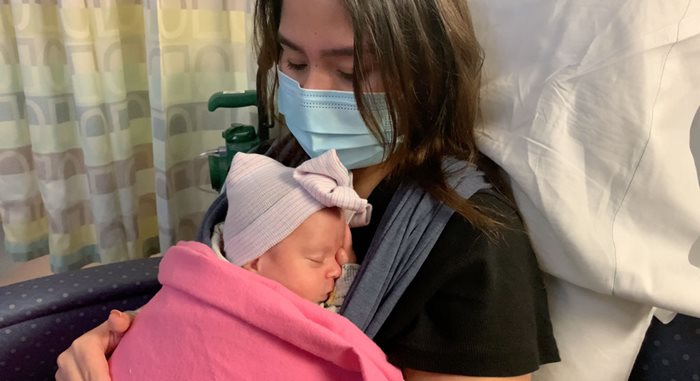
From the ICU, to rehabilitation, to the NICU, clinical staff and doctors worked together to help Manoz recover and regain her strength, all while keeping her close to her baby.
Community Regional team helps Manoz bond with her baby
During Manoz’s recovery in the ICU and after she tested negative several times for COVID-19, the NICU staff helped Manoz and her baby bond since she had missed the first few weeks of Madalyn Rose’s life.
“I didn’t get to touch her at first, I had to touch her through the glass. It was super emotional, I couldn’t believe it,” she said. “Is this really my baby? I only got to see her for 20 minutes but they brought her back the next day and I got to hold her.”
Manoz said she was so weak she needed help just to hold Madalyn, and she was grateful to the NICU staff for teaching her how to safely care for her baby while in the hospital and when she went home.
From hell to a dream come true
“Grandma Ornelas,” Manoz’s mom, said for the first few weeks after the baby was delivered, Manoz wasn’t coherent enough to participate, but the staff made sure mom and baby were together when possible. Ornelas even had to pick Madalyn’s name since Manoz couldn’t communicate her choice. So, after posing a series of choices to Manoz and watching for a reaction, Ornelas was able to come up with Madalyn Rose. Now Manoz says she “loves the name, it’s perfect.”
The whole ordeal, Ornelas said, was like going from “Hell to a dream come true” with almost losing her daughter, and then getting her back again — this time, with sweet baby Madalyn.
Dr. Fayed said Manoz fought very hard, like his team did to save her, and he’s so glad she could go home to recover with a healthy baby.
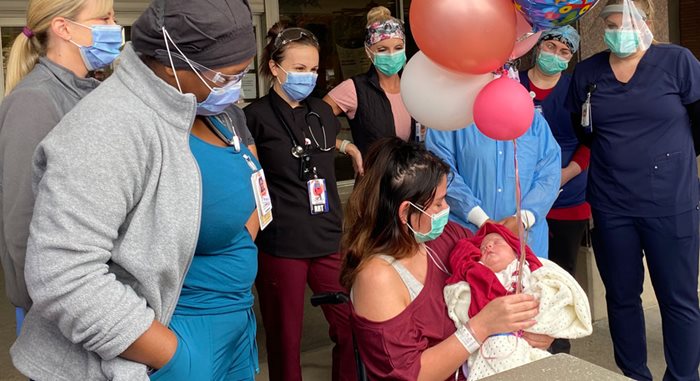
“We tried to do everything we could to limit any complications during her course of treatment,” said Dr. Fayed. “She had a really incredible outcome … and gets to go home with her baby … and that’s really the important thing.”
A happy ending
This Community Regional multi-team effort saved not only Manoz, but baby Madalyn Rose, both of whom were discharged from the hospital on Tuesday, Nov. 17, in a celebrated send-off from staff. There were tears and “cheers” from Gabby, her family and all her caregivers at Community Regional, including Dr. Fayed who came to see her off. One of her nurses bent down to hug Manoz goodbye and told her: “These are happy tears, I’m going to miss you.”



